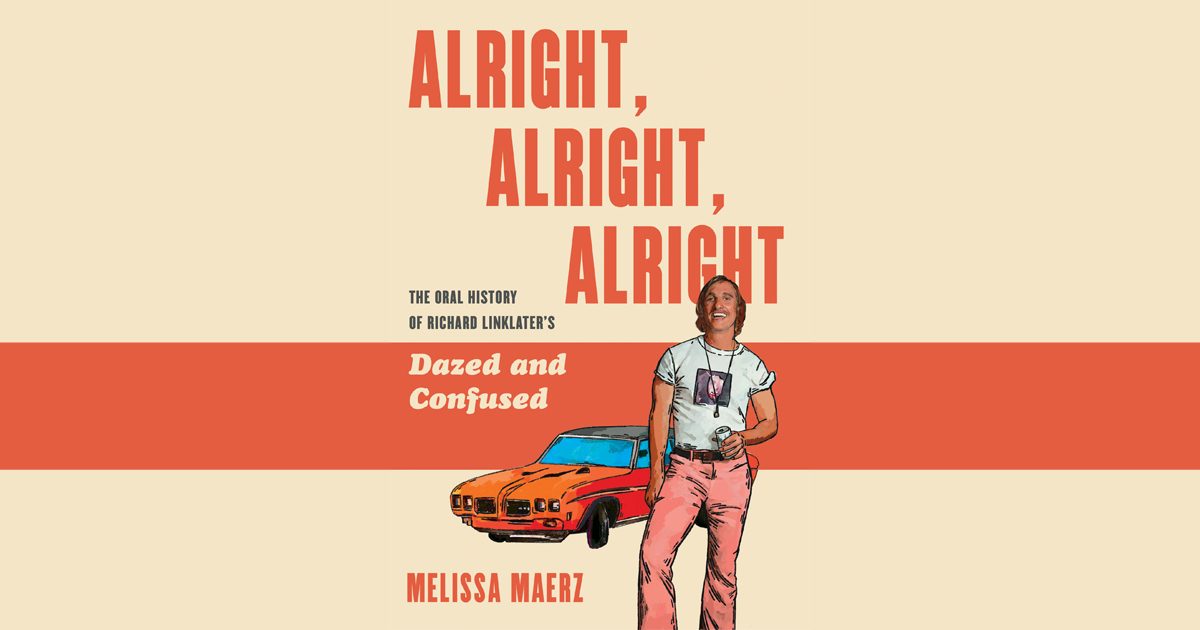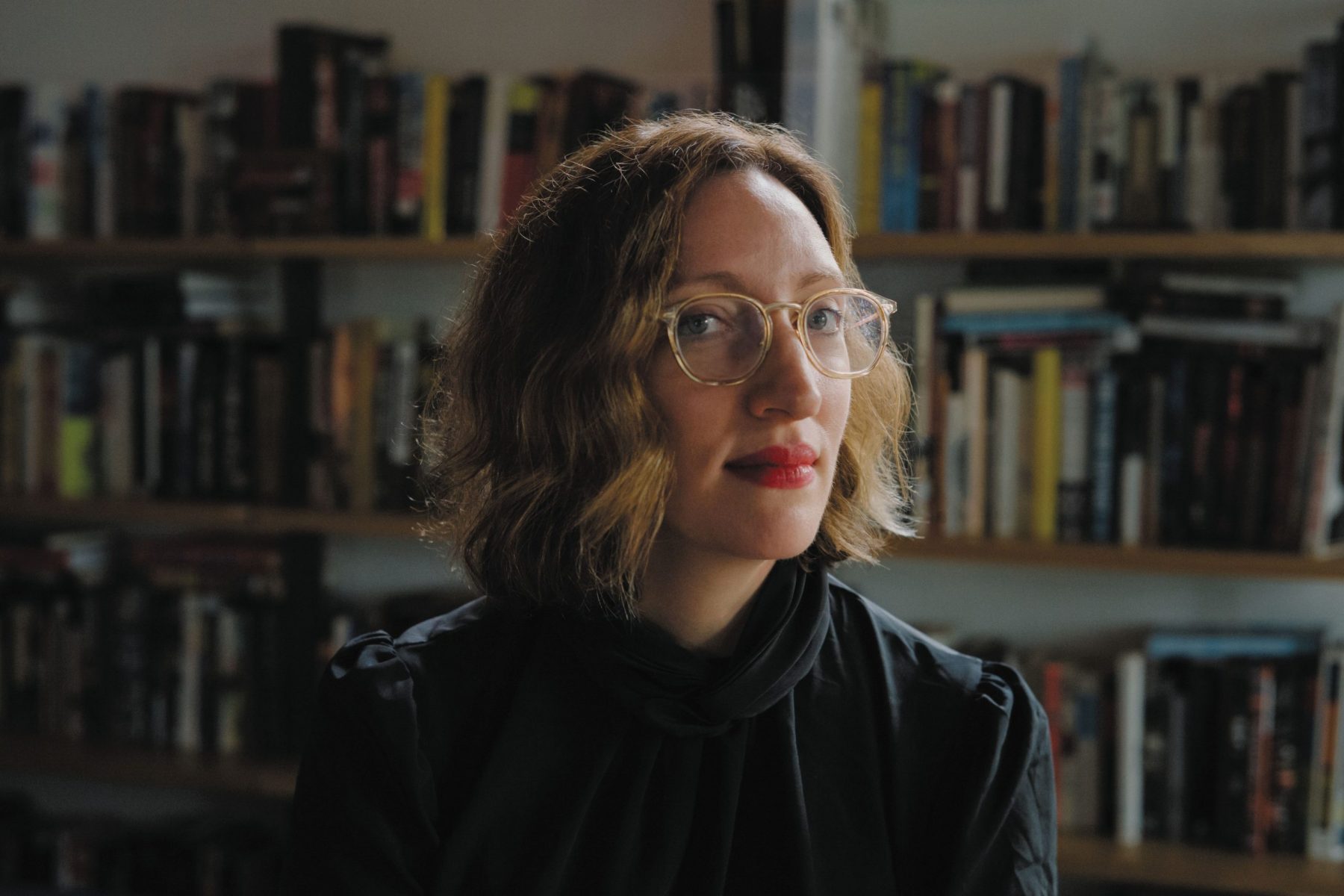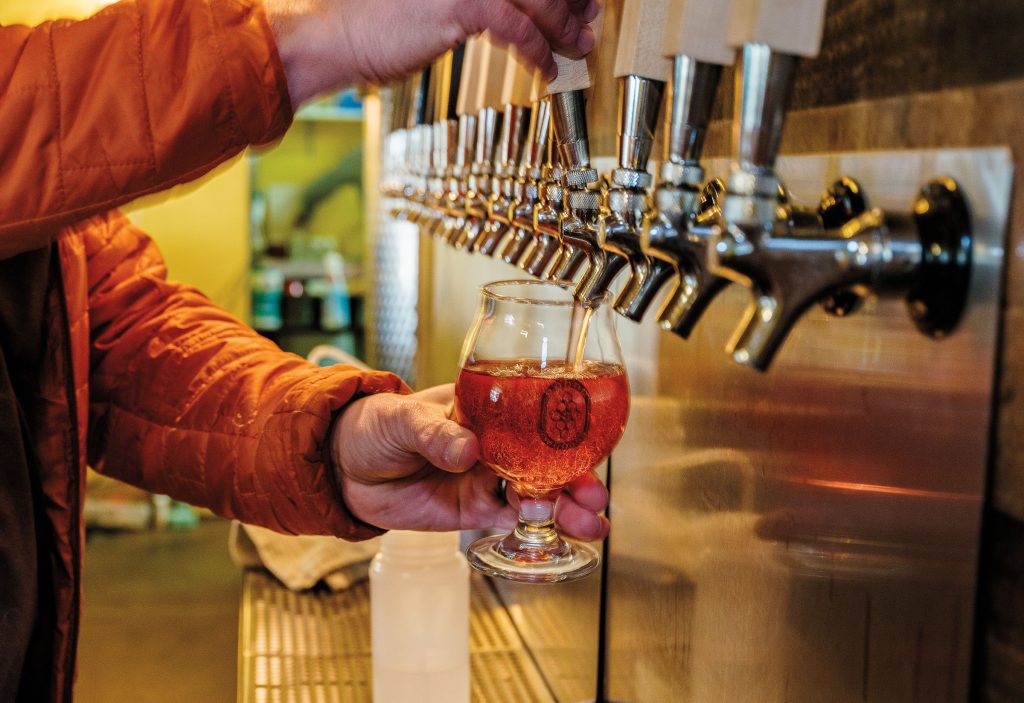
The title of the book comes from one of the movie’s most famous lines. Courtesy HarperCollins.
This fall marks the 27th anniversary of the release of Richard Linklater’s iconic, coming-of-age movie, Dazed and Confused. As many Texans (and non-Texans) know, this movie elevated Austin’s favorite filmmaker from an indie auteur to something closer to a mainstream Hollywood director. It also announced the arrivals of Matthew McConaughey and many other talented actors, such as Parker Posey and Ben Affleck. Tapping into the most famous line of dialogue in the movie, Alright, Alright, Alright: An Oral History of Richard Linklater’s Dazed and Confused by Melissa Maerz unpacks everything a dedicated viewer would want to know about this timeless classic.
Maerz, a veteran magazine editor and journalist, interviewed nearly 150 people, including the cast, studio producers, old high school friends of Linklater’s, and others. She also examined letters, memos, script drafts, and other archival materials to create this comprehensive take. The book, out November 17, is an exhaustive feat of journalism that gives the reader a front-row seat to Linklater’s creative process as a budding filmmaker. Texas Highways spoke with Maerz about her debut book, teenage culture, Huntsville, the nostalgia of this “anti-nostalgia” film, and more.
The Austin Film Society will host a virtual launch event at 7 p.m. CST on November 18. Andy Greenwald, host of the popular podcast The Watch, will moderate a conversation between Linklater and Maerz. There’s more information here.
Do you remember the first time you saw Dazed and Confused?
I saw it in the fall of 1993, in a movie theater in Portland, Oregon, with my best friend, Leah. I had just started my first year of high school, and I remember identifying with Mitch. Even though the movie is set in 1976, it didn’t really feel like “the past” to me. Aerosmith was still a popular band in 1993, just like it was in 1976. Teenage culture hadn’t really changed that much since the ’70s. Kids were still mostly just driving around, listening to the radio, going to parties, smoking weed. The world of Dazed didn’t feel like some bygone era. It felt like a preview of my future, what high school was going to be like. I think that’s why the movie still resonates with many people of my generation. There’s something about it that feels timeless.
Was there anything in particular that reminded you of your own high school experience?
One of the most fun parts of researching this book was discovering how incredibly specific the details from Dazed and Confused are to Huntsville, where Linklater went to high school. There was a real Emporium, and a real Wooderson, and many Texas schools forced football players to sign a real drug pledge. And yet, the more specific the movie gets to Linklater’s own experience, the more universal it feels to many of its fans. Many people had a Wooderson at their school, or a Slater, or a Darla. Many people had some kind of structure that kids climbed when they got drunk, even if it wasn’t a moontower. And lots of people told me crazy stories about how seniors hazed the freshmen at their schools. In the book, Parker Posey tells a great, disgusting story about how her aunt got hazed.
For me, the smaller moments feel the most relatable. Like the scene where the kids on the baseball team line up, slap hands with the other team, and say “good game.” Or when Mitch and Julie make out on an itchy blanket in the grass. Or when Mitch blocks out his mom’s lecture by putting on headphones. Those scenes feel like memories to me.
What’s your favorite scene in the movie?
Definitely the scene where they’re hanging out on the football field and Pink is looking off into the distance, and the camera kind of whirls around him. It’s right after he says my favorite line in the movie: “If I ever start referring to these as the best years of my life, remind me to kill myself.”
Up until that scene, the whole movie has been so grounded in the moment-to-moment reality of being a bored teenager on a single night that seems to go on forever. This is the only time you really see Pink take a step back and think about how he might remember this night when it’s over. Linklater tells me Pink is a stand-in for himself in high school, so that scene really feels layered and poignant. You get the perspective of the teenager who’s wondering what life will be like when he’s an adult. And you also get the perspective of the adult, remembering what it was like to be that teenager.

Melissa Maerz was inspired by the “anti-nostalgia” of the nostalgic movie. Courtesy HarperCollins.
What inspired you to write this book about this movie and director?
I think it started when I read an interview with Linklater where he said that he had originally wanted Dazed and Confused to be an “anti-nostalgia movie.” I thought, that’s really interesting. So many people love the movie because it makes them nostalgic for high school, or for the ’70s, when it was set, or for the ’90s, when it came out. I wondered, how did this anti-nostalgia movie become one of the biggest nostalgia movies of all time? So, that was the initial question I wanted to answer.
But I also just knew there would be good stories to tell about Dazed because it was such a hinge point in so many people’s lives. It was the first studio film for Linklater, and for better or worse, it was kind of his “Welcome to Hollywood” film. For many of the actors, it was the first project where they were encouraged to improvise, and write their own scenes, and really contribute creatively to a movie—and for some of them, it was also the last time. And that’s another reason why the nostalgia theme works: A lot of the cast and crew are still incredibly nostalgic for the time they spent making this movie.
What’s the most surprising fact that you learned about Linklater?
I was surprised and impressed at the lengths he was willing to go to in order to protect his vision for the film. There’s a chapter in the book about a really intense battle Linklater had with studio executives over a single song that was supposed to play during the second half of the credits. Jim Jacks, who was a producer on Dazed, was like, “Nobody’s even going to be in the theater during the second half of the credits! Who cares!” But Linklater cared about every single detail in that movie. He had to make sure it felt authentic—not just to the period, but also to teenage life in general. And I think that’s why we’re still talking about the movie almost 30 years later.
How many times have you seen Dazed and Confused?
I am notoriously terrible at estimating things. One hundred? One billion? And yet, people tell me all the time that they’ve watched Dazed more than anyone else has, including me. I think the fact that it doesn’t really have a plot means it holds up better with repeat viewings. You’re not watching to follow the story. You’re watching to hang out with the characters. Quentin Tarantino once said he rented the movie to make himself feel less lonely because watching it felt like he was hanging out with friends.
Did you travel to Huntsville for research for the book?
The vast majority of the people I interviewed have long since moved out of Huntsville, so I interviewed them from their homes in various other cities. But my first impression was that I loved the people I interviewed who grew up there. Talking to them was one of my favorite parts of reporting this book. Everyone just seemed incredibly charming and funny, and there were so many natural storytellers in that group. I know Linklater thought his high school experience sucked, but the people he went to school with seemed really fun.
What was most memorable fact that you learned about the state of Texas while working on this book?
The history of corporal punishment in Texas schools was something I knew nothing about until I started writing this book. When I watched Dazed as a teenager, the one thing that felt over-the-top to me was the seniors paddling the freshmen with wooden paddles. Nothing like that happened at my school in Portland, so I assumed Linklater made that up. But that really happened, with actual wooden paddles, at Linklater’s school. I was surprised to learn not only that seniors were paddling the freshmen, but also that parents basically condoned the beatings, and teachers and principals paddled the kids, too. I read a study that claimed more than 1,000 Texas schools still used corporal punishment as a disciplinary measure in 2015-2016, most often in the form of beating students with a wooden paddle. That was hard to wrap my mind around.
What’s the most surprising thing you learned while working on this book?
Linklater once said, “I used to believe in some kind of fate, but the older I get, the more I believe in randomness and … timing.” After writing this book, I really understand what he meant. I was surprised that good timing was so much of the story behind Dazed getting made—and this is the story behind how so many great movies end up getting made. For example, Linklater happened to bring his previous film, Slacker, to the Sundance Film Festival during a year when the festival was just starting to take off, and producers were there searching for indie directors to work with on these relatively small, $6 million studio films. Studios didn’t really make films like that anymore. There are multiple examples of good timing in the book. It’s a good reminder that making a great movie isn’t just about talent; it’s also about luck.
Why do you think Dazed and Confused stands apart from other coming-of-age films?
If you watch the high school movies that came just before Dazed, they’re often pretty dramatic. There’s always a scene where someone crashes their car, or loses their virginity, or throws an over-the-top party at some rich kid’s mansion. Nothing very dramatic happens in Dazed. Yes, there’s a party, but it’s out in the woods, and it’s pretty unglamorous. Everyone’s kind of greasy-looking, and no one’s really doing anything beyond hanging out and talking. In fact, the whole movie is just a bunch of kids hanging out and talking. And I think that’s what made it feel so revolutionary at the time. Because that’s what being a teenager is really like for so many people. Most of the time you’re just sitting around, waiting for something cool to happen.
Did you know early on your book’s title was going to borrow the most iconic line of dialogue from the film?
Early on, I’d used Alright, Alright, Alright as a placeholder title in my book proposal. I’d always intended to come up with a different title, and I actually suggested a number of alternatives. But everyone convinced me to keep Alright, Alright, Alright because it’s so iconic. Linklater actually made me feel better about keeping the title because he told me Dazed and Confused started out as a placeholder title, too. Now I can’t imagine the movie being called anything else.
Poignantly, you open with the Bastrop fires, where Linklater lost everything in 2011—and over this summer much of the West Coast was burning. Has it been strange to reread the opening in light of the fire and what you experienced in your home state of Oregon?
My family had to stay inside for a week because the air was so toxic, but I’m very lucky that my house was never really in danger of burning down like Linklater’s did. The fact that he lost everything in that fire, and still seemed determined not to dwell too much on the loss, tells you a lot about him. He strikes me as a very anti-materialistic person. There’s a chapter in the book where his friends talk about his relationship to money, how he’d meticulously write down everything he spent money on, down to a can of caffeine-free Pepsi. You get the sense that he views money as freedom, so he doesn’t want to waste it on “stuff.” He wants to save his money to invest in his own films, and make them the way he wants to make them.
Is there any particular bit of wisdom that is dispensed in this book—by Linklater or someone else—that might be helpful for readers who are coping with the ongoing pandemic and everything else of 2020?
I mentioned before that my favorite line in the movie is “If I ever start referring to these as the best years of my life, remind me to kill myself.” That definitely feels like a good motto for 2020.








